It starts off with an instantly familiar guitar passage. The flute enters at 18 seconds in. You wait for the words: “There’s a lady who’s sure all that glitters is gold…”
But they don’t come.
Instead you hear: “Just sit right back and you’ll hear a tale/A tale of a fateful trip, that started from this tropic port, aboard this tiny ship.”
What the hell, you ask yourself, is this?!
Its official title is “Gilligan’s Island (Stairway)” but it’s usually just called “Stairway to Gilligan’s Island”—by the relatively few people who’ve heard it. Those people include Weird Al Yankovic, who has credited the 45 r.p.m. single as providing the inspiration to begin his career spoofing pop hits.
It was released in 1978 on a small independent label called Splash Records, and credited to Little Roger & the Goosebumps.
It was, in a word, hilarious. But Led Zeppelin’s attorneys didn’t think so. We’ll get to that in a minute. First, the backstory (based on information provided to Best Classic Bands by Roger Clark, the Little Roger of the band name).
In 1977, Little Roger and the Goosebumps, a San Francisco-based pop band, was rehearsing new throwaway TV themes and other unlikely material to pad a nonsense medley for the last set of their grueling five-nights-a-week/four sets-of-largely-original-songs-a-night routine. Their wildly varying original material had confused the record industry but had won Little Roger and his partner Dick Bright a large loyal following up and down the West Coast and Mountain states.
While learning the theme to the Gilligan’s Island TV show, it became instantly clear to the musicians that the chord progression was very similar to that of “Stairway to Heaven.” So was born what Clark calls “the infamous Frankenstein novelty song” that perfectly married the Zep classic and the theme from the popular ’60s sitcom starring Bob Denver. “It was the original rock mash-up,” Clark says. “Everyone in the band at the time lays claim to first having the idea, of course, but the swift decision to act on it was purely an executive one.”
Produced by Matthew Kaufman (of the Bay Area’s Beserkley Records) and Kenny Laguna (songwriter/producer of several ’60s bubblegum hits and later Joan Jett’s manager/producer), the track was recorded in March 1978, with the local band Earthquake providing the music.
Even today, it’s a hoot. We don’t want to spoil the initial listening experience (scroll down to hear it) but suffice to say that Clark and the musicians managed to both honor and cleverly lampoon “Stairway to Heaven.”
Things happened quickly once the single was released. During its first week in the wild, the song debuted on KSAN, the popular FM rock station in San Francisco. By its second week, all major Northern California radio stations, as well as stations in Seattle and the rest of the Pacific Northwest, had jumped on the record. By week three, Midwest and East Coast FM and Top 40 stations had jumped on board. The following week, Little Roger and the Goosebumps became a hot commodity, with major labels wanting to sign them.
Then, week five: It all goes south. A private detective from Louis Nizer’s law firm (representing the publisher, Zeppelin’s label Atlantic Records and Sherwood Schwartz, the television producer who’d created Gilligan’s Island) delivered cease and desist papers to Clark’s parents’ house from a federal court in New York.
Says Clark, “The legal issue involved whether ‘fair use’ included this kind of manipulation, complicated by the fact that two songs were defiled. The lawyers were thorough enough to have eliminated an end run by roping Sherwood Schwartz into the complaint. We were not in a position to fight and were ordered to turn over or destroy all copies, tapes and pressing parts. We ignored that one. Their lawyers paid to have people call radio stations demanding that they stop playing the record. It didn’t work.”
Needless to say, though, a small-time indie band from San Francisco was no match for such high-powered lawyers. Little Roger and the Goosebumps—although they had credited both Robert Plant and Jimmy Page and the Gilligan theme’s writers on the label of the single—gave up, and so ended the brief but fun saga of “Gilligan’s Island (Stairway).”
Or did it?
Fortunately, enough copies had already been circulated so that this brilliantly conceived and executed novelty record would never truly disappear. (In fact, in 2000, Laguna bravely reissued it on a CD called Laguna Tunes, this time officially renamed “Stairway to Gilligan’s Island.”)
Its popularity is greater posthumously than during its one-month life. The recording even provided a question and answer on the popular game Trivial Pursuit!
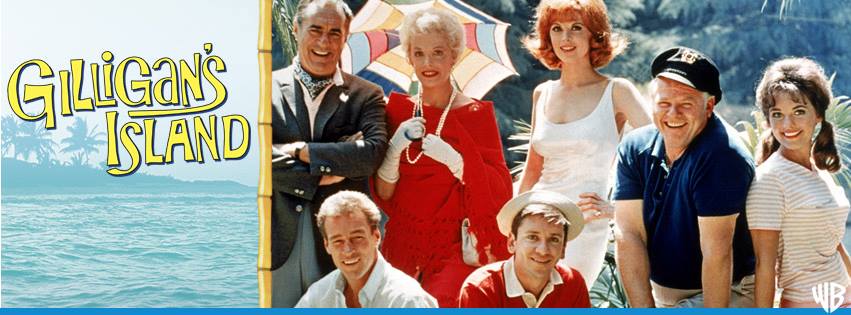
As of Jan. 2026, Tina Louise, who played castaway Ginger, is the sole surviving member. She was born on February 11, 1934. Dawn Wells, who played Mary Ann, turned 82 on October 18, 2020, but died two months later of Covid-19.
“Yes, it won’t die!” says Clark. “The record killed my band and haunts me to this day! I have become the worst cliché in show business—someone who gets known for comedy who wants to be taken seriously: the dreaded Jim Nabors syndrome! At the time I was pretty pissed to have been bagged as a spoof artist and forced to grudgingly release some other weak novelties, but after not too long I came to appreciate that I attained some notoriety in a sea of unknowns. Judging from how regularly I get calls or messages from people, I guess somebody finds a thin excuse to mention or play it regularly.”

Little Roger and the Goosebumps’ “Gilligan’s Island (Stairway),” signed by…Robert Plant
Some have theorized that Clark was intending to make some kind of grand statement with the record. He laughs. “The deep pop culture commentary that has been attributed to this record was unintentional,” he says. “It was, to us, a stupid joke to pull out at the end of the night.”
Did Led Zeppelin’s members ever comment themselves? Well, look at the photo to the right. It’s autographed: “My favorite, Robert Plant.”
Says Clark: “I met Robert Plant at a local benefit in the late ’80s, armed with a copy of the single, intent on giving him a ration of righteous sh*t. Of course, he charmingly processed me in about 30 seconds. ‘Oh, you are Little Roger? I love this record!’ He signed it, turned me toward the cameras for the obligatory picture, and was gone. In 2005 he told Terry Gross on an NPR interview that it was his all-time favorite Led Zeppelin cover.”
Hear “Gilligan’s Island (Stairway),” aka “Stairway to Gilligan’s Island”
In case you missed it in the above caption, there is just one member of the Gilligan’s Island cast that is still with us. Tina Louise, who played Ginger, turns 92 on February 11, 2026. Dawn Wells, who played Mary Ann, died in December 2020 of Covid-19.
Related: Gilligan’s Island – An appreciation
And then there’s this! Jimmy Page and Bob “Gilligan” Denver share a birthday. Both were born on Jan. 9… nine years apart.
Bonus… the series’ opening and closing credits
The complete Gilligan’s Island series is available for purchase here.

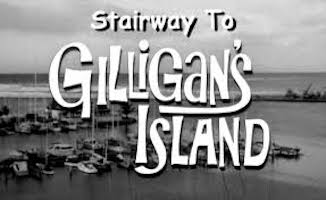
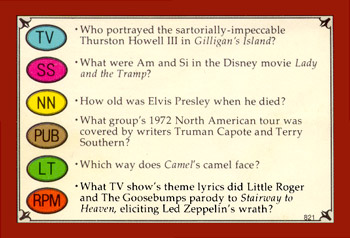
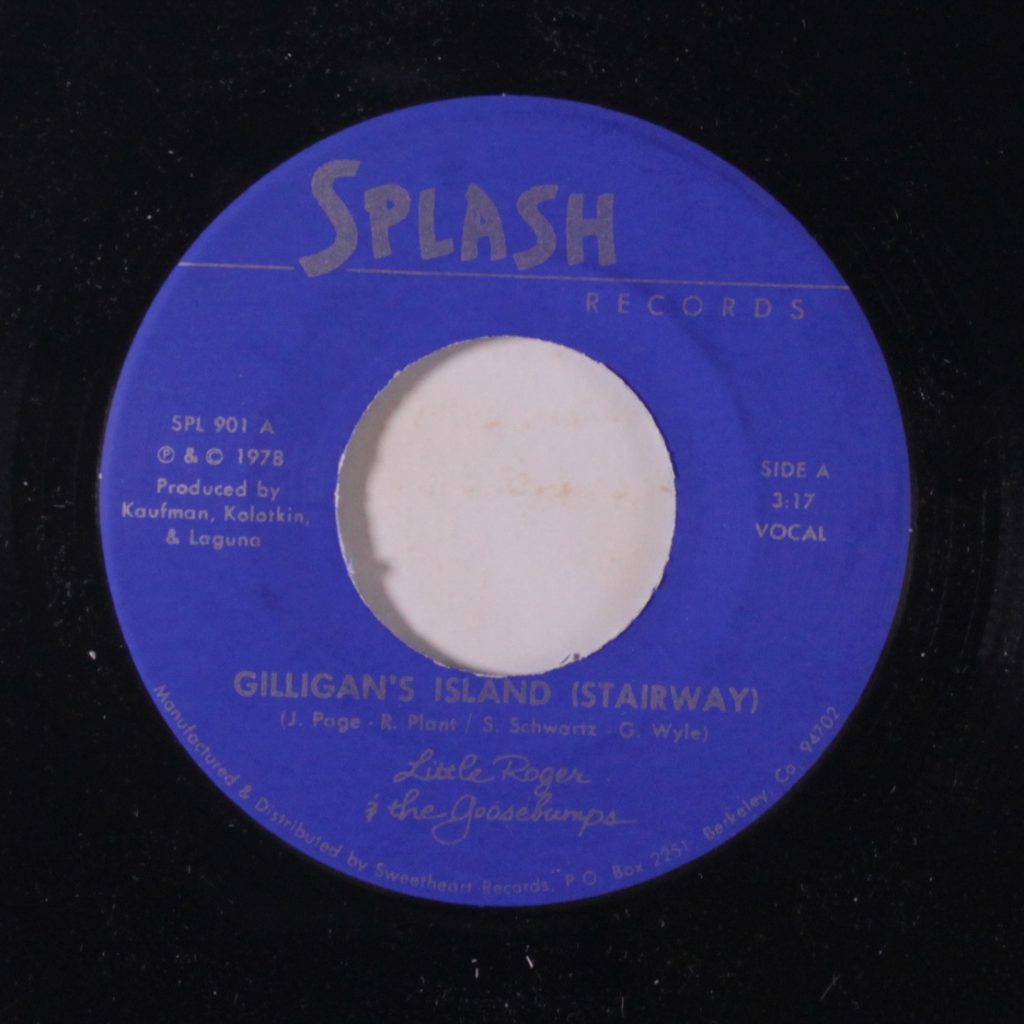



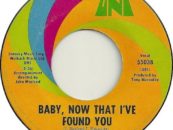



7 Comments so far
Jump into a conversationIn a similar vein, a few years afterwards, a guy in San Francisco(where else?)calling himself Gomer Hendrix(??!!) did another peculiar mash-up.
Having the lyrics of the theme from the TV theme of “Green Acres” grafted onto the music of “Purple Haze” is downright hilarious!!
Although pretty young
at the time,I can remember this record being listed by
mail-order record outlets at the time
(Dedicated Fool?)
I unfortunately did not
buy a copy then,but did
eventually hear it years
later,maybe from the CD
mentioned here.
Interestingly of note,
It was Bob Denver himself that lobbied
on behalf of the other actors to have all their
character role titles
placed into the lyrics,
replacing “the rest”
sung by Roger Clark.
Be it as it may and you
can call it what you want
a gimmick tune or not,
this is still a cool little
record,and Roger and
the Goosebumbs have
left their stamp in the
annals of Rock history.
The Bay Area must have been a breeding ground for this sort of thing at one time. I can remember KFJC – the college station in Los Altos – holding a contest in the early ‘80s for the best alternate version of “Louie Louie.” The winner was a studio-quality demo of the lyrics set to the tune of Men at Work’s “Who Can It Be Now?”
And of course, as most churched folks know, you can sing the words of Amazing Grace to the tune of the Gilligan’s Island theme…
Years ago at a WFMU Record Fair, we heard someone sing the “Gilligan’s Island” theme lyrics to the tune of “House of the Rising Son”.
It worked remarkably well!
Roger Clark is lucky Peter Grant didn’t get his mitts on him. Haha.
I first heard this version of the song about 40 years ago or so on KQRS FM radio in Minneapolis. I only heard it once, but I never forgot it. And now here it is. Great stuff.